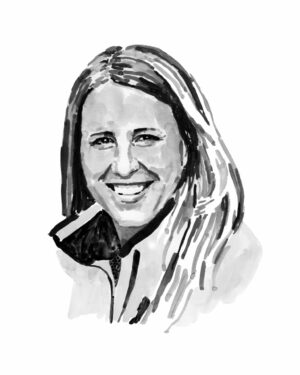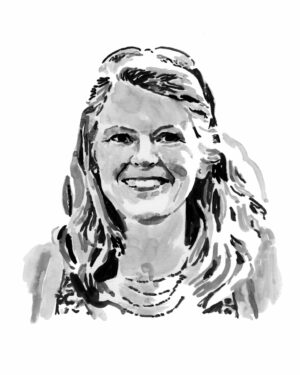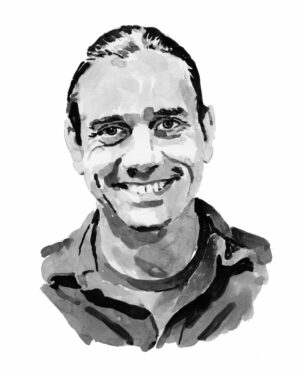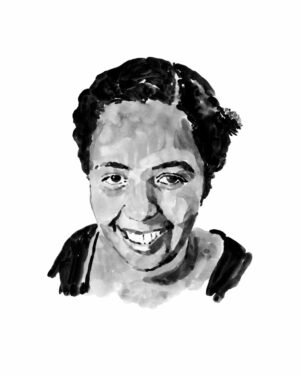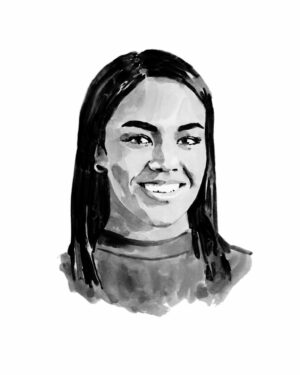Team
Our team consists of a passionate group of people who are dedicated to marine conservation. Our core operations are handled by a small group of people located in various offices around the world.
MANAGEMENT & ADMINISTRATION
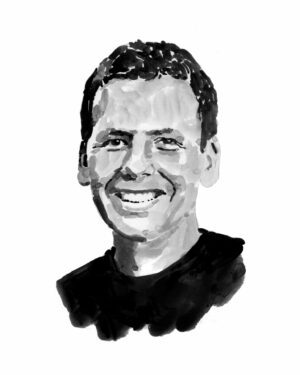
Dr. James Lea
Chief Executive Officer
James is the chief executive officer of the Save Our Seas Foundation.
He has had a fascination for the marine realm from a young age and it was this that sparked his ambition to explore the oceans. Having been humbled by encounters with various shark species, he became keen to learn as much as he could about their behaviour and ecology. James gained a first-class Honours degree in biological sciences from the University of Oxford and then volunteered as a shark researcher at the Bimini Biological Field Station. At Bimini he cut his teeth catching, tagging and tracking sharks, and working with them so closely consolidated his passion and further motivated him to fight for marine conservation.
James then moved to work as a research scientist for the Save Our Seas Foundation, before completing a PhD in marine biology at the University of Plymouth in collaboration with the D’Arros Research Centre. His primary research focus was a comprehensive tagging programme tracking almost 200 sharks of seven different species in Seychelles, aiming to determine the factors that drive their movement behaviour and use this knowledge to inform effective conservation strategies. James’ research has helped to contribute to the design of marine protected areas and has revealed previously unknown open ocean migrations of tiger and bull sharks, highlighting the challenge of managing shark populations that span ocean basins. He continues his research as part of the Evolutionary Ecology Group at the University of Cambridge.
James fully realises the importance of actively promoting awareness of marine conservation issues, so he is particularly excited to lead the Save Our Sea Foundation team to help ensure that we can live with healthy oceans for generations to come.
Sandrine Griffiths
Grant Programme Manager
Sandrine first became passionate about biology and genetics in college, although from an early age she had always felt a strong need to be immersed in nature. Born in Switzerland, she was lucky to spend long vacations by the Mediterranean Sea, savouring the elements and admiring the marine fauna as she tried to follow her father, a free-diver. Later she travelled less often, so the Swiss mountains and Lake Geneva, one of the largest lakes in Western Europe, fed her need for nature.
A biologist by training, Sandrine taught science to teenagers before joining a biotech company where she acquired strong project management skills. After seven years, an opportunity arose that enabled her to set up her own business and open a sailing and nautical sports store on the shore of Lake Geneva. It was this adventure that reminded her how much she wanted to take care of the many aquatic ecosystems and their wildlife that is degraded by human activity. She is passionate about living creatures in all their forms.
COMMUNICATIONS
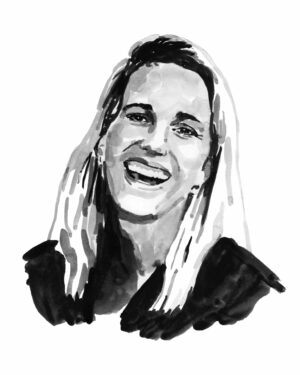
Jade Robyn Schultz
Global Communications Manager
From a young age when she and her family would go on holiday to nature reserves and the seaside, Jade has felt a very strong connection to the natural world and a great appreciation for its overwhelming beauty. With time however, she realised that this was a view few others shared. Having experienced in particular how little other people know about the wonders of the ocean, she became acutely aware that they know even less about the dangers that the marine realm faces.
With a background in marketing and media experience, Jade understands that the media is extremely powerful when it comes to spreading a message and raising awareness– and, in fact, in today’s digital world it is an invaluable conservation tool. She believes that the knowledge and experience that she is able to bring to the Save Our Seas Foundation’s Conservation Media Unit, together with the passion and dedication of the other team members, can and will make a positive difference in the mindset of the public – and, ultimately, the health of our oceans.
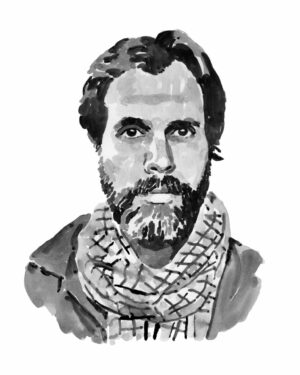
Thomas P. Peschak
Director of Storytelling
Thomas P. Peschak is a National Geographic Photographer, Explorer and Fellow who specialises in documenting both the beauty and the fragility of the world’s oceans, islands and coasts. For National Geographic Magazine he has produced 10 feature stories that cover various natural history and conservation issues, ranging from manta rays to marine protected areas.
Originally trained as a marine biologist, Thomas embraced photojournalism 15 years ago after realising that his photographs could have greater conservation impact than scientific statistics. He is a founding director of the Manta Trust and a senior fellow of the International League of Conservation Photographers. His images have won 17 Wildlife Photographer of the Year and seven World Press Photo awards. Thomas has supplied the photographs and text for seven books, including Currents of Contrast, Sharks & People and Manta: The secret life of devil rays. He is a popular speaker for National Geographic Live, having presented more than 20 shows in 15 cities on three continents. His official 2015 TED talk, ‘Dive into an ocean photographer’s world’, has been viewed more than one million times.
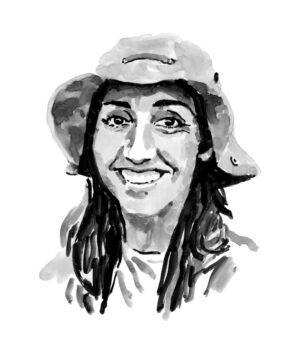
Dr. Lauren De Vos
Scientific Writer
Lauren has loved wilderness and wildlife since she can remember and it was her curiosity about life on earth that led her to science. As a child, her attentiveness to all life, right down to scooping the ants out of the bathtub before running the water, was probably a giveaway to her family as to her career direction in conservation…
Lauren graduated with a BSc in environmental and geographical science, followed by Honours in zoology and an MSc in conservation biology at the University of Cape Town. She went on to work as a researcher at the university and became an SOSF project leader, leading a project that aimed to introduce BRUVs monitoring to South Africa’s marine protected area network and working with local conservation agencies to design methods that could be simply and effectively repeated at low cost around the coast. She then completed her PhD using remote camera methods to assess the biodiversity of South Africa’s largest bay. Her career has spanned scientific research, marine education and storytelling through film and writing. She has worked previously for the I AM WATER Foundation, where she is a current trustee, and as a lead marine biologist on the Oceans Alive project in the iSimangaliso Wetland Park, a UNESCO World Heritage Site, for WILDOCEANS, a programme of the WILDTRUST.
As a marine biologist, Lauren has worked in some beautiful places. Her love of nature has guided her career in science and conservation, but through her research she has become increasingly aware of the challenges we face. Her approach has always been to act to secure her hope that we can build a better future. She believes that her writing can help to encourage others to become conscious of their own connections to nature. By translating science into stories, Lauren is acting on her optimism that change is possible.
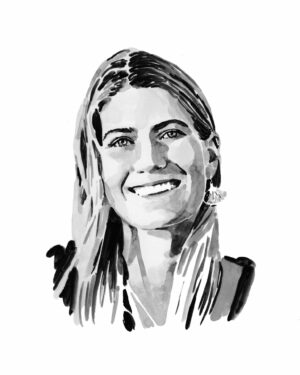
Caiti Allison
Content Creator and Digital Engagement Coordinator
Caiti grew up in a small fishing town on the east coast of South Africa, raised on the water and shaped by the ocean community. Those early years she spent surfing, fishing and diving fostered a deep connection with the ocean and a curiosity about its inhabitants, leading her into a career as an ichthyologist and marine biologist. During the course of her journey as a scientist, she came to understand that the people for whom ocean science is so deeply relevant would never get to learn about it. From this, her vocation for storytelling was born. She now dedicates herself to communicating science and the stories of ocean stewards through written and visual media, finding meaning in the richness of these tales and the understanding that is hopefully nurtured.
Before joining the Save Our Seas Foundation, Caiti had the great fortune to work as a science communicator on the One Ocean Hub deep-sea capacity development cruise in the Amathole region of South Africa. She also spent time in the Cayman Islands working for the Central Caribbean Marine Institute, where she assisted on the live broadcasting of the educational <i>Reefs Go Live</i> to thousands of local and international children.
Caiti hopes that more people will be exposed to ocean science in a way that will bring genuine understanding and emotional connection, so that we can move towards a planetary change that will serve the well-being of the world’s oceans and the communities connected to them.
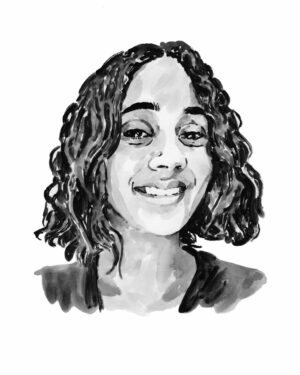
Faaizah Southgate
Communications Assistant
Faaizah’s love for nature and conservation began when, as a little girl, she was deeply intrigued by the nature documentaries aired on local television and found her imagination expanding beyond the boundaries of the life she knew. Her affinity for geography throughout her years at school led to her enrolling at the University of Cape Town, where she completed a Bachelor of Social Science with majors in archaeology, anthropology and environmental and geographical science. She also has a certification in adventure-based learning.
As well as assisting the Conservation Media Unit of the Save Our Seas Foundation, Faaizah works at a local NPO, the I AM WATER Foundation. She says, ‘I believe in the power of education and communication to lead the change that is necessary in a world of constant change. Now more than ever, it is important to conserve and preserve our natural environment for ourselves and for the generations to come.’
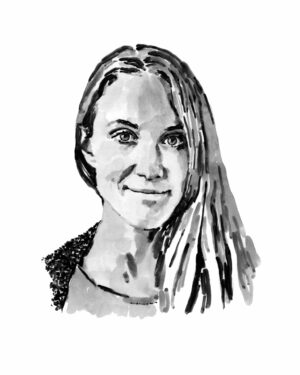 Jamy Silver
Jamy Silver
Visual Content Designer
Jamy grew up a compulsive picker-up of litter and a chronic rescuer of miscellaneous small creatures from various sticky situations. After graduating with a degree in communications, she quickly realised that the default career in advertising wasn’t going to be contributing towards anything she valued (in fact, aggressively the opposite). Life is short, so she looked to translate those same skills into a more meaningful direction – conservation and science communication – and hasn’t looked back.
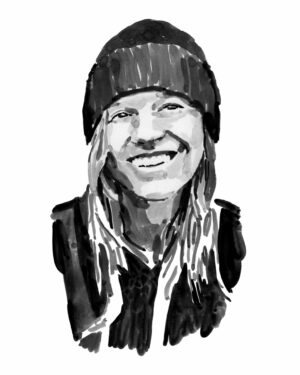
Dr. Isla Hodgson
Science Communicator
Isla grew up with the icy waters of the North Sea as her playground and spent a happy childhood surfing, wild swimming and poking around rock pools. Those early years sparked a lifelong fascination with the underwater world and she has lived by the ocean ever since, swapping the rugged coastlines of northern England for the vibrant wilderness of the Hebrides on Scotland’s west coast. Keen to learn as much as possible about life beneath the waves, Isla studied marine science at the University of Aberdeen and gained a Master’s degree studying the habitat use of minke whales in Scottish waters. It was during this time that she learned to scuba dive, which opened up a whole new world of ocean exploration. She then went on to complete a PhD, which focused less on the marine life and more on the animals impacting it: humans. She is now an expert in conservation conflicts, environmental governance and conservation social science and has advised Scottish and UK government and international conservation bodies, including WWF and the IUCN.
Isla discovered her passion for science communication as an undergraduate while working for a local aquarium, where she gave talks to the public about the sharks and rays under her care. She later went on to work for the BBC as a researcher and producer and wrote for outlets such as BBC Wildlife and The Naked Scientists. In 2019 she took a break from academia to work as a guide for Basking Shark Scotland, a job that involved swimming with the second-largest species of shark in the world, collecting data and showcasing the sharks and their habitat to the public. During lockdown she gave several online talks sharing her passion and enthusiasm for basking sharks, which led to a job in science communication with the Save Our Seas Foundation. Isla now considers herself to have the best job in the world: talking about sharks and shark science with the people who know them best and promoting how awesome these animals really are.
SCIENTIFIC COMMITTEE
Sarah Fowler
Scientific Advisor
Sarah has a first class joint honours degree in zoology and marine zoology from the University College of North Wales, an MSc in conservation from University College London and 30 years of professional experience as a marine biodiversity conservation expert. She has worked in various capacities for government departments, national and international NGOs and a biodiversity consultancy. Having been appointed to the IUCN Shark Specialist Group in 1991, she chaired it for many years and is now its vice-chair for international treaties.
Sarah founded the European Elasmobranch Association and its UK member, the Shark Trust (and is a trustee of the latter). She was appointed Officer of the Order of the British Empire for services to marine conservation in 2004, and a Pew Fellow in Marine Conservation in 2005. She became principal scientist for the Save Our Seas Foundation in 2011.
Dr. Dean Grubbs
Scientific Advisor
Dr Dean Grubbs is a fish ecologist with interests in the biology of exploited and poorly studied estuarine and marine taxa. Much of his research addresses specific gaps in biological knowledge necessary for the management and conservation of coastal and deep-water sharks and rays. Dean specialises in the use of fishery-independent surveys to study population dynamics and the drivers of distribution patterns of fishes and to facilitate studies of life histories, reproductive biology, trophic ecology and systematics. Dean has also tagged and released more than 10,000 sharks representing over 40 species during the past 25 years. He employs a variety of tagging and telemetry techniques to examine movement, migration and patterns of habitat use and to delineate essential and vulnerable habitats for exploited, threatened or poorly studies species.
Dean is a native of Florida and his early years spent fishing and exploring the waters of the north-eastern Gulf of Mexico led to an early interest in marine biology. He received Bachelor’s degrees in marine science and biology from the University of Miami and a doctoral degree in Fisheries Science from the College of William & Mary’s Virginia Institute of Marine Science. Dean was a post-doctoral researcher and faculty member at the Hawaii Institute of Marine Biology before moving to Florida State University (FSU) in 2007. He is a member of the IUCN Shark Specialist Group, the National Oceanographic and Atmospheric Administration (NOAA) Office of Protected Resources’ Smalltooth Sawfish Recovery Team and NOAA’s SouthEast Data Assessment and Review Advisory Panel for Highly Migratory Species. Dean is currently the associate director of research at the FSU Coastal and Marine Lab, where he mentors graduate and undergraduate students and maintains an active research programme on the ecology of deep-water and coastal fishes. His research has been featured in many television documentaries, including National Geographic TV, National Geographic Wild, Discovery Channel and the US Public Broadcasting System.
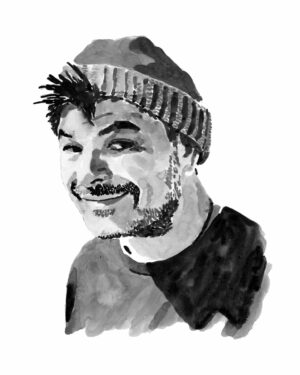
Dr. Andrew Chin
Scientific Advisor
Dr Andrew Chin is a fisheries scientist whose work focuses on shark and ray biology and ecology, and how the information from this research can be translated into conservation and sustainability. Specifically, Andrew is interested in how fishes use coastal and marine habitats and how patterns of use affect their vulnerability to pressures such as fishing, habitat loss and climate change. His recent research spans the life history and biology of sharks by means of tagging and acoustic telemetry, as well as risk assessment. As an applied scientist, Andrew is also very interested in how fishes, sharks and rays interact with people and how their populations can be managed, as well as in impacts on their populations.
Andrew grew up in South-East Asia but currently lives in Queensland, Australia, where he received his PhD from James Cook University. He has a diverse marine background, having worked as a marine biologist in the tourism industry and as an education officer in a public aquarium. He also spent 10 years working at the Great Barrier Reef Marine Park Authority, the Australian federal agency charged with protecting the Great Barrier Reef. In 2017, Andrew launched SharkSearch Indo-Pacific, an effort that blends formal research, citizen science and public outreach, and aims to develop a scientifically robust shark diversity checklist and conservation account for every country and territory in the Pacific by 2022. He is also one of the founders of the Oceania Chondrichthyan Society and a member of the IUCN Shark Specialist Group.
CONSULTANTS
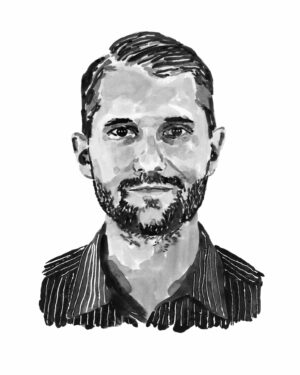
Stefan Kubicki
Technology Advisor
Stefan grew up in North Dakota, about as far away as it’s possible to get from the coast in the USA. He first developed a fascination with sharks and the underwater world thanks to nature documentaries and well-worn issues of National Geographic. He began his career as an analyst at a UN-based NGO in New York before moving to London, where he worked as a web developer and advisor to several startup companies. He joined the Save Our Seas Foundation in 2010. Aside from his work for the foundation, Stefan is an award-winning filmmaker whose films have screened at festivals around the world.
SOSF D’ARROS RESEARCH CENTRE
D’Arros Island, Seychelles
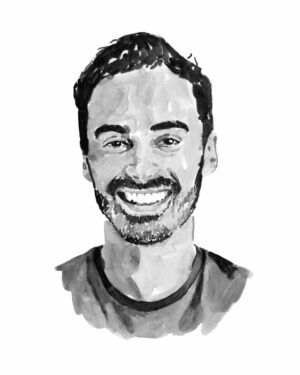
Dr. Robert Bullock
Research Director
Rob can trace his love for science and the marine world back to his youth and to Sir David Attenborough, whose words instilled a curiosity that soon grew into a passion for learning about nature. As an adult, Rob pursued this passion, studying marine and freshwater biology at the University of Hull. As he learned more about the marine realm and its inhabitants, he became particularly interested in the importance of species in healthy ecosystems and the need for science-based conservation. Through his education he discovered the amazing diversity among sharks, the fascinating roles they play in marine systems and the extreme threats they face.
Rob conducted his PhD research at the Bimini Biological Field Station, where he worked as a Principal Investigator and studied the fine-scale behaviour of young lemon sharks using the Bimini Island nursery sites. He then moved on to broaden his skill set as a post-doctoral research associate with the Marine Biodiversity Unit of the International Union for Conservation of Nature (IUCN), assessing extinction risk to marine species. Rob’s career thus far has taken him to the intersection of scientific research and conservation action and he is driven to deliver science with tangible conservation outcomes.
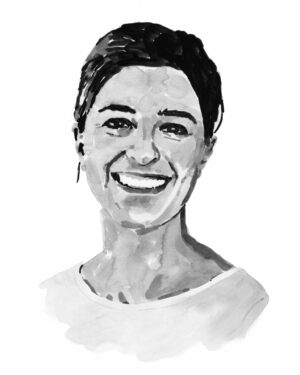
Henriette Grimmel
Programme Director
Growing up in Germany and Switzerland, where competitive swimming and rowing meant that she spent a lot of time in and on water, Henriette has always had a strong connection to this element. Hiking and camping holidays with her family led to an enduring interest in animals and nature. She first dipped into marine biology while studying in the USA during a high-school exchange year, learning about marine species and snorkelling for the first time in Hawaii.
At university Henriette studied geography and environmental sciences and it took a few more years before she discovered an interest in diving in Lake Zurich and a fascination for sharks. She followed these up with saltwater experiences while volunteering in Mozambique, where she assisted in whale shark research and fish censuses. After further travels and a dive-master internship in Honduras, she went on to complete an Erasmus Mundus Master’s in marine biodiversity and conservation, conducting her field study at the Bimini Biological Field Station in The Bahamas. She gained further experience in marine research while working with the Large Marine Vertebrates Research Institute (LAMAVE) in the Philippines, where she helped to monitor a mobulid fishery and assisted in shark research in Tubbataha Reefs Natural Park.
Although it was diving and sharks that got Henriette into marine science, she has always been interested in the complexities of ocean management and how humans interact with the marine world, so she completed a second Erasmus Mundus Master’s, this time in maritime spatial planning from the universities of Seville, the Azores and Iuav Venice. Sharks and conservation remain close to her heart, but Henriette also has a very strong interest in understanding ocean processes, ecosystem services and how humans use them, and finding a pathway to governing that use in a sustainable manner.
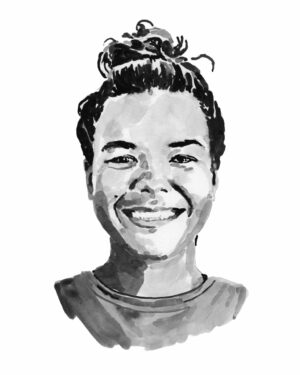
Ellie Moulinie
Research Officer
Born and raised in Seychelles, Ellie loves the island life. She comes from a family of fishermen living next to the ocean, so school holidays meant enjoying the sun and sea every day and, as a strong swimmer, especially snorkelling and diving. Her love of animals, nature and the ocean and her desire to visit all 115 islands in Seychelles influenced her to pursue a Bachelor’s degree in environmental science at the University of Seychelles. Only after learning how to dive did she realise that she wanted to specialise in marine science and fisheries. As an intern for Global Vision International she learnt about fish and marine invertebrates and their importance, and how to conduct surveys to monitor them. She ventured further into marine research by volunteering with the NGO Green Island Foundation, helping to conduct surveys on islands such as North, Denis and Fregate. In 2018 Ellie joined an Earthwatch team on Curieuse Island, where she participated in its Coral Communities in Seychelles Project.
Always moving her career in conservation forward, Ellie most recently worked with the Seychelles Islands Foundation as a field research officer on Aldabra Atoll, where her tasks consisted of conducting terrestrial surveys on the flora and fauna as well as marine research as part of Aldabra’s annual marine monitoring programme. As a young emerging scientist and conservationist, she believes it is her duty and responsibility to do her part to protect global ecosystems and threatened species against anthropogenic stressors and the effects of climate change that are causing the loss of biodiversity.
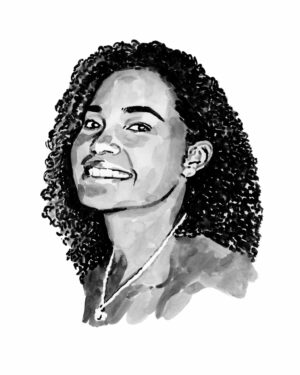
Dillys Pouponeau
Research Officer
Originally from Praslin Island, home of the largest nut in the world (coco de mer), Dillys had some amazing experiences as a member of environmental clubs during her school years and these taught her the importance of protecting biodiversity. They inspired her to pursue a Bachelor’s degree in environmental science, specialising in tropical biodiversity conservation, at the University of Seychelles.
As a young environmental conservationist with an interest in all living things and habitat types, Dillys has had the privilege of working on numerous terrestrial and marine projects, ranging from scientific research to environmental education and sustainability projects on several islands in Seychelles. She also has a strong interest in well-preserved biodiverse ecosystems, which she enjoys capturing on video and in photographs that enable her to raise awareness and engage people’s interest. She is keen to fill her professional and private life with anything that is fun, artistic, creative, exploratory and adventurous, as long as it is in the wild. Dillys wishes to pursue her studies further and develop the necessary skills required to become a great scientist and nature photographer and videographer.
Her career began at the Vallée de Mai Nature Reserve, where she worked as a field research assistant before undertaking her academic degree. After finishing at university, she was employed as the sustainability manager at a five-star hotel and most recently she worked as the assistant conservation officer with the Island Conservation Society. She worked on Silhouette Island (93% national park and surrounding marine park) and at Aride Island Special Reserve and Marine Protected Area, where she coordinated conservation projects and managed a team of eight.
ISLAND SCHOOL SEYCHELLES
Mahé, Seychelles
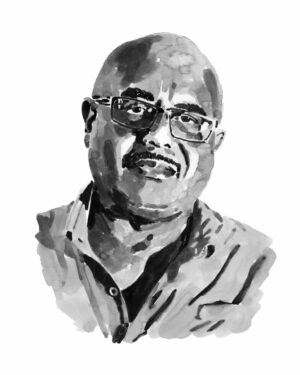
Terence Vel
UniSey & Island School Seychelles
Before joining University of Seychelles in 2015 as a science laboratory technician and a field lecturer for BSc environmental science students, Terence Vel spent 16 years as a laboratory technician in various secondary schools. Twenty-one years ago he became a founder of Wildlife Clubs of Seychelles and during this time has managed the organisation’s projects and coordinated environmental programmes in 40 schools on Mahé, Praslin and La Digue. In 2000 he worked as a technician on a project called ‘Avian ecosystems in Seychelles’, which was funded by the Global Environment Facility and implemented by the former BirdLife Seychelles. The project involved two distinct phases: in the first, ecological research was carried out on a number of the Seychelles’ Inner Islands to investigate their biology and conservation potential; during the second, endemic Seychellois birds were translocated from certain islands to others that were more suitable. In 2008 Terence embarked on studies for a diploma in environmental education and social marketing at the University of Kent’s School of Anthropology and Conservation. This led him to The Darwin Initiative Rare Pride Campaign to work on a project called ‘Investing in island biodiversity: restoring the Seychelles paradise flycatcher’. The project was based on La Digue Island and aimed to translocate a small population of birds on Denis Island. Terence also conducts outreach programmes that focus on marine education for youth groups from the community.
Sheena Talma
Save Our Seas Foundation Ambassador and Island School Coordinator
Sheena Talma is a marine biologist and the owner of Talma Consultancy, a marine-based company in Seychelles. She works with the Save Our Seas Foundation co-ordinating the D’Arros Experience, a camp dedicated to teaching students about the marine and terrestrial worlds. Sheena has a keen interest in learning more about how we use the ocean and the implications of overfishing, marine pollution and climate change in that relationship. She holds a Master’s degree in ichthyology from Rhodes University and NRF-SAIAB in South Africa, and she is a National Geographic Explorer and a finalist for the local ocean hero award.
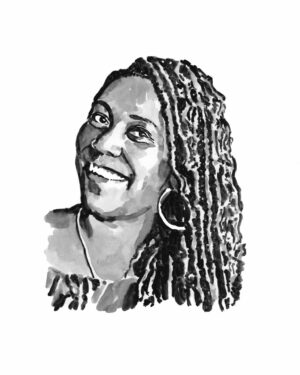
Sheril De Comarmond
Education and Communications Coordinator
Sheril grew up in the beautiful Seychelles archipelago. From a young age she felt the need to give back to the planet because human beings take so much from the natural world. Later she chose to venture into the conservation sphere and in the early part of her career she worked as a ranger and a project assistant with different NGOs that were active in both terrestrial and marine conservation in Seychelles. After graduating with a degree in environmental science, Sheril got the opportunity to be part of an educational project called PAREO (The Coral Reef Heritage of the Indian Ocean in Our Hands). Since then she has believed that education is the best way to give back and make a bigger difference, not just for the present generation, but for future generations too. During an interview she once heard, someone said, ‘There is so much research and data out there. It is not a lack of information that is an obstacle in conservation, but the limited action taken with the information provided.’ This is when she realised that more young scientists should focus not just on their research, but also on finding ways to reach beyond it and strike a balance between what is being discovered and what action is being taken to make use of that knowledge.
Sheril joined the Save Our Seas Foundation as the first full-time education and communications coordinator for Seychelles in 2023 and hopes to teach young Seychellois about the importance of marine life. But most importantly, she wants to encourage young people to engage actively in the protection of fragile species and habitats in Seychelles’ exclusive economic zone.
SOSF SHARK EDUCATION CENTRE
Kalk Bay, Western Cape, South Africa
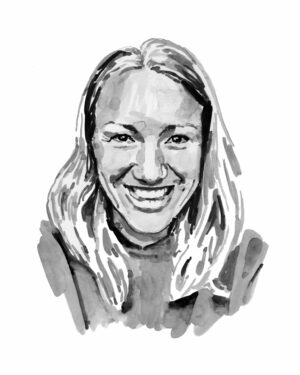
Dr. Clova Mabin
Education Centre Director
Originally from Scotland, Clova has been in love with the ocean since she was a toddler and has fond memories of windswept beaches and very cold water! A conservation expedition to the warmer waters of Madagascar and subsequently working as a diving aquarist in a Scottish aquarium cemented her passion for all things marine. She came to South Africa in 2005 to work as a dive master with tiger sharks and then joined the White Shark Trust as a research assistant. During this time she became involved in the wildlife film industry, developing her science communication and project management skills. Keen to further her education, Clova went on to complete an MSc in conservation biology and then a PhD focusing on the status and management options for marine species that have invaded South African shores. This applied research made her realise how remote most science is from the general public and how such inaccessibility contributes to the many conservation issues we face today.
Clova loves to travel, but when in South Africa she spends her free time outdoors, either underwater or in the mountains. She is a certified PADI dive master and scientific commercial diver. As a mother and a volunteer for several organisations that focus on environmental education, she enjoys teaching children about ecology and sustainable lifestyle choices. She is passionate about sharing her love and knowledge of the marine environment, as she believes this is the best way to shape our future.
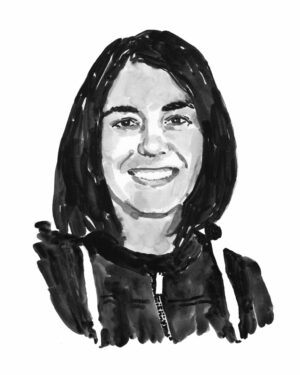
Claire Metcalf
Facilities Administrator
Raised in various small West Coast fishing and mining towns of South Africa and Namibia, with parents whose free-range approach to parenting meant lots of time outside exploring beaches, Claire is a firm believer in the power of experiential education in moulding future generations to become effective conservationists. Claire joined the Save Our Seas Foundation Shark Education Centre in May 2016 after almost eight years with Liberty Life Financial Services as a franchise business support administrator. With a diploma in administration and legal studies from Montrose Business College in Cape Town, in her role as the facilities administrator she brings a high level of organisation and structure to the dynamic working environment that is the Shark Education Centre. She is enjoying every minute of the varied opportunities this role brings and, in addition to seeing to facilities maintenance and administration, she has become a vital part of the team, joining school groups as they learn about, explore and appreciate the ocean. She has also made it her personal mission to convince the education centre’s resident puffadder shysharks to eat their food. With a family that has earned – and continues to earn – its income almost entirely from the sea, Claire has a vested interest in the conservation of the oceans for current and future generations. She believes that she is in exactly the right place to be able to contribute to this.
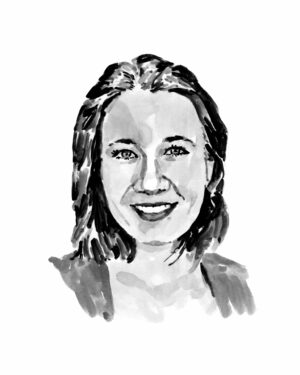
Karen Merrett
Education Coordinator
For as long as Karen can remember, she has felt her happiest when connecting with the natural world and sharing that excitement with those around her. Born and raised in Cape Town – and still living there – she was privileged to be able to spend time exploring a diverse range of habitats, from mountain peaks to the world below the ocean’s surface, and everything in between.
Her interest in environmental education was ignited while she was studying nature conservation and gaining work experience as a student at Blaauwberg Nature Reserve. During this time she discovered how the simple act of sharing her knowledge and excitement was infectious to those around her. After eight years of working across Cape Town in this field, it is safe to say the flame is still burning brightly. Karen continues to be inspired by witnessing over and over again the power of providing safe spaces in which people can develop and strengthen their own relationship with the natural world.
Although Karen has always found the marine environment fascinating and full of wonder, it was only as an adult that she took the plunge to expand her exploration beyond the rocky and sandy shores. Taking up snorkelling as a hobby enabled her to view the treasure trove of life existing beneath the surface through her own lens and to solidify her relationship with the underwater realm.
Karen joined the Save Our Seas Foundation Shark Education Centre team as education coordinator in October 2022.
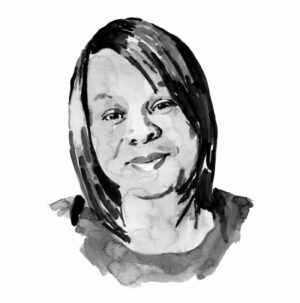
Justine Swartz
Senior Educator
Justine grew up in the greater Cape Flats area and always loved adventuring with her mom and younger brother, walking from central Cape Town to the beach at Camps Bay to swim. She particularly enjoyed walking past Table Mountain and being able to admire the great rock massif and the beauty of nature around it. In her final year at school she began volunteering at an organisation where she was involved with environmental camps and dragon-boat racing, which proved to be the start of an amazing journey into nature conservation. Looking back on it today, that journey has taken her from terrestrial and freshwater ecosystems to marine conservation. Justine believes in educating young minds, as they are the ones that will bring about change. Above all, she has a love for people and a passion for conserving the natural environment.
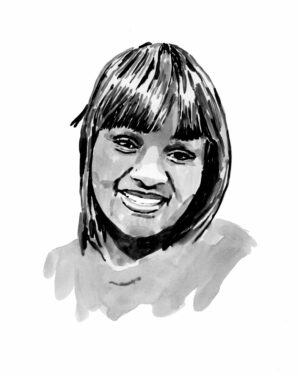
Afikile Ndude
Senior Educator
Afikile hails from the Eastern Cape but grew up in a small township on the Cape Flats, near Cape Town. Her passion for the environment was ignited by her various activities, such as gardening, working in the fields and even herding animals, while visiting Mthatha in the Eastern Cape. As she became more aware of the differences in climate and landscape between the Eastern Cape and the Western Cape, she began to question many things, which led to geography and natural sciences becoming her favourite subjects in high school. However, her limited exposure to the sea meant that she had few opportunities to learn about the ocean, and it was barely covered in the curriculum. Her dream was to study natural sciences further and qualify as a teacher so that she could answer the questions that her teachers hadn’t been able to. After Grade 12, she decided to study environmental sciences to understand more about the environment and what it means to take care of it. She then went on to study for a BSc Honours degree to get better insight into the development of environmental management policy.
After graduation, Afikile’s first job was in environmental conservation and education, giving her an opportunity to combine three passions: environment, education and people. The fact that 70% of the earth is ocean and that a large percentage of the population has no connection to it, or even realises its importance, is of great concern, which is why there is a need for education about marine conservation. She never expected to learn about the ocean – or teach others about it – until the opportunity to work for the Save Our Seas Foundation Shark Education Centre presented itself. She can now do her bit by educating people about the sea.
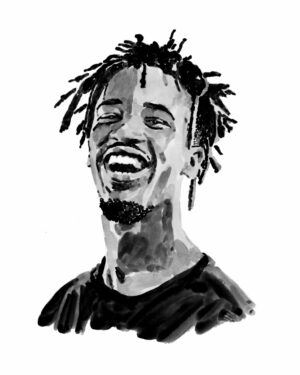
Wade Naude
Junior Educator
I come from an under-resourced community in Paarl. I never had much exposure to the ocean growing up because I lived so far away from it. I was the first in my household and the first of my friends to go to a university. When I started my course in marine science at the Cape Peninsula University of Technology, I learned a lot about the ocean. I began to understand the processes in the ocean, the different species found there and their adaptations, and the benefits we as people obtain from the ocean. I also got to do lab work for the first time, such as dissections and experiments related to chemistry and physics. I made sure I exposed myself to the marine environment as much as possible in order to nurture and grow my passion for the ocean. I attended beach clean-ups and volunteered at the Southern African Foundation for the Conservation of Coastal Birds (SANCCOB).
I recently completed my Diploma in Marine Science and during my time as an intern at the Save Our Seas Foundation Shark Education Centre I realised that education in the marine science field is crucial, especially for communities of colour, where I come from. A lot of people have a misperception when it comes to the ocean. When people hear the word ‘science’, they are completely overwhelmed by it because of the way science is introduced to them. I told myself that maybe if there were ways to simplify the information or make it relatable to communities of colour, it would be easier to connect them or get them interested in learning about the ocean. My main aim is to reconnect these communities to the ocean and nature. I also aim to break the barriers that were created by the apartheid system for these communities, especially through education.
I recently connected my community to nature by creating my own clean-ups along the Berg River that flows through Paarl. My aim with the clean-ups is to create a sense of stewardship in the people from my community. I am also a dancer, mainly Krump, and I used to teach choreography in my community before I moved to the Cape Peninsula. I believe that dance, as well as other forms of art, can be used to share messages, especially about environmental awareness.
Logan Benjamin
Junior Educator
I come from the Cape Flats, outside Cape Town. Growing up, I didn’t have many opportunities to explore. My family and I went to the beach twice a year, so I was always excited when the December holidays came around. I am extremely passionate about the natural world, which I learned about through reading books. I took part in selection camps and was finally chosen to take part in a conservation leadership programme that lasted for seven years. Through this, I learned about South Africa’s diverse natural beauty. I also had the opportunity to visit the Two Oceans Aquarium and observe how marine biologists were studying different marine species. From that point forward I decided that I wanted to become one of those people doing the research and educating people about it. I think it’s important that we create opportunities for young people by teaching and influencing them and showing them what the natural world is about. By doing that we create a better environment for everyone, whether we’re educating them about marine life or simply about easy ways to discard waste responsibly. I think that brings about change in more ways than one.
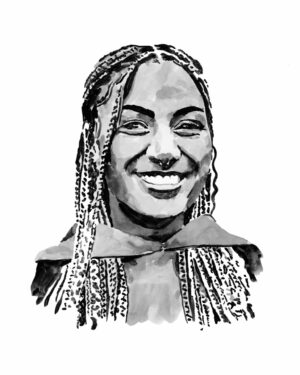
Antonique Dick
Antonique grew up in Manenberg, in the Cape Flats area of Cape Town, where she rarely had the opportunity to visit the ocean. She knew to respect it, though, for as beautiful as it is, it can also be a scary place. So she learned to keep her distance. From Grade 7 she started working towards making her dream of studying journalism a reality, and in 2021 she graduated from Rhodes University with an Honours degree in Journalism. By this time, however, Antonique realised her path had shifted and instead of being a humanitarian journalist, she wanted to tell stories through filming and editing.
Her first job was in conservation and although she had never imagined advocating for the conservation of the ocean, this is where her passion grew. Learning more about the ocean and having it become more accessible to someone like her shifted her entire mindset. Still aware that the ocean can be scary and that we should always respect it, she realises that, more importantly, we should look after it because it is so much more. It provides for us, protects us and heals us, often without our realising it. Antonique is therefore grateful to be working in conservation and wants to use her newfound knowledge to show people who come from a background similar to hers that this world is ours and we are allowed to take up space in it, whatever our circumstances. To surround oneself with nature is something that everyone should experience. She loves the work she does at the Save Our Seas Foundation Shark Education Centre. In her opinion, education is power, and she is grateful that her path has led her here. She can see change happening and appreciates the opportunity to play a part in it.
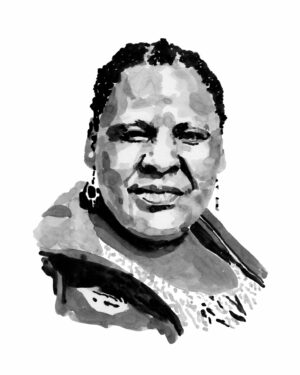
Lillian Ngotshane
Housekeeper
Lillian was born and raised in the Eastern Cape, South Africa, and attended a rural primary school near Middledrift. The nearest coast was almost two hours away by bus, so the village children would spend their free time playing in and around the local rivers. Lillian was a teenager when she saw the ocean for the first time. After completing secondary school, she started working as a seamstress in a local factory before moving to Cape Town in search of work. In 2015, she became the housekeeper for the SOSF-SEC and was soon a treasured member of the team. She is the hands and heart behind all the food that we prepare for visiting groups of schoolchildren.
When Lillian started working for the SOSF-SEC, she was afraid of sharks and would never venture into the sea. Thanks to her experiences with the organisation and exposure to the marine environment, including some snorkelling, she now not only ventures into the sea without fear, but loves all the sea creatures and wants to make sure that we take care of them all.
SOSF SHARK RESEARCH CENTER
Dania Beach, Florida, USA
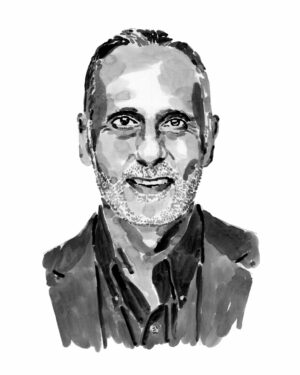
Dr. Mahmood Shivji
Director
Mahmood is professor of marine science at Nova Southeastern University’s (NSU) Oceanographic Center in Florida and a director of the SOSF Shark Research Center. He received his undergraduate degree in biological sciences at Simon Fraser University in Canada, his masters from the University of California, Santa Barbara, and his PhD from the University of Washington. He has been a faculty member at NSU since 1993 and a director of the SOSF Shark Research Center since 2010.
Mahmood credits his life-long fascination with biology to growing up in Kenya, where he was routinely exposed to African wildlife and undersea environments as a child and teenager. His interests in marine science in particular were boosted when as an undergraduate student he assisted one of his professors with kelp-bed ecology research in a pristine part of British Columbia. That experience proved transformative, leading to a career in marine and conservation science and education.
In addition to leading the research and education programmes of the shark research centre, Mahmood directs the Guy Harvey Research Institute, emphasising collaborative projects between the two entities to achieve larger and more impactful research and conservation outcomes. He specialises in integrating laboratory genetics-based and field-work approaches to study and solve problems pertaining to the management and conservation of sharks and rays, billfishes and coral reef ecosystems.
Mahmood’s work consistently receives worldwide attention. His research developing rapid DNA forensic methods to identify shark body parts is being used by US and other national fisheries management agencies to reduce the illegal fishing of threatened species. This work is also on exhibit at the Smithsonian Museum’s Sant Ocean Hall in Washington DC, and his team’s research discoveries have been widely reported in the national and international media.
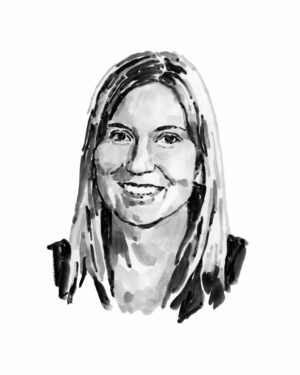
Dr. Andrea Bernard
Researcher Scientist
Andrea grew up in Toronto, Canada, and spent many hours sailing on Lake Ontario. From a very young age, she has loved watery environments, dipping her toes into Ontario’s Muskoka lakes, Florida’s coastal waters, and even a neighbourhood pool. As a high school student, she travelled to Canada’s east coast and studied the great tides of the Bay of Fundy as part of a summer marine biology course, cementing her future career path to the study of aquatic science.
Andrea subsequently earned a Bachelor’s degree at the University of Guelph, Canada, studying marine and freshwater biology, and after graduating she interned at both the Department of Fisheries and Oceans Canada Great Lakes Laboratory located in Burlington, Ontario, where she studied everything from algae to fish habitat, and at the Mote Marine Laboratory & Aquarium in Florida, where she came face to face with a shark for the first time – and never forgot the experience! She then returned to university and completed a Master’s degree at the University of Guelph, investigating the population genetics of lake whitefish, followed by a doctorate at Nova Southeastern University (NSU), where she studied the population genetics of sharks, stingrays, and billfishes. She is currently an associate research scientist at NSU and the SOSF Shark Research Center, where she investigates the population dynamics of mainly sharks, with an emphasis on genetics and genomics-based ecology and conservation.
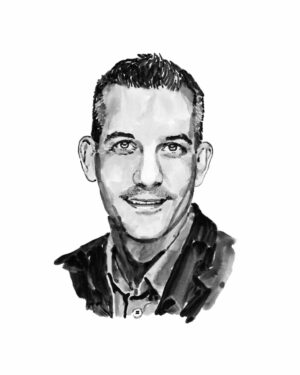
Dr. Matthew Johnston
Assistant Professor
Matt grew up in the beautiful Black Hills of South Dakota, where he spent his childhood fishing, camping, and enjoying all that the woods offer. Coming from a family of fishers and hunters, he spent a lot of time at mountain lakes and brooks and was often distracted by catching frogs, snakes, and minnows in the marshes when he should have been monitoring a fishing pole. His childhood dream to study the ocean and its inhabitants came from visits to a small roadside tourist attraction called ‘Marine Life Aquarium’, as well as from the home marine aquariums he attempted to maintain as a child.
Matt earned an undergraduate degree in information systems but changed career paths later in life to earn his PhD in marine biology and oceanography at Nova Southeastern University (NSU). Currently an assistant professor in the Department of Biological Sciences at NSU, he teaches various graduate and undergraduate courses, many of which focus on the integration of science and technology. He is also a researcher at the SOSF Shark Research Center, where his work involves computational biology as applied to investigating shark movement ecology and connectivity patterns of broadcast spawning marine species.
Matt lives on a small hobby farm in the country, raising chickens, parrots, and poodles. He also enjoys collecting fossils, many of which are relics of North America’s Western Interior Seaway.
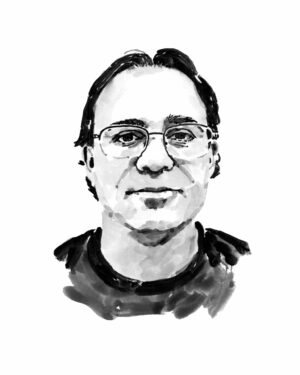
Dr. Jeremy Vaudo
Research Scientist
Jeremy grew up in coastal southern California exploring tidal pools and taking classes and volunteering at the local aquarium, so the decision to pursue marine biology was made at a very early age. After studying biology for his Bachelor’s degree at the University of California, Santa Barbara, he entered the shark research world while earning his MS at California State University, Long Beach, studying the movement patterns of round stingrays. During his PhD at Florida International University he continued his work on rays, investigating the habitat use and foraging ecology of a ray community in Shark Bay, Australia. Since joining Nova Southeastern University as a research scientist in 2013, Jeremy has applied his quantitative ecology skills to the open ocean, studying the movements and habitat use of large pelagic fishes, particularly sharks.
